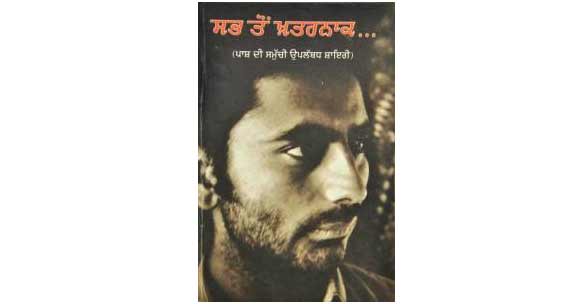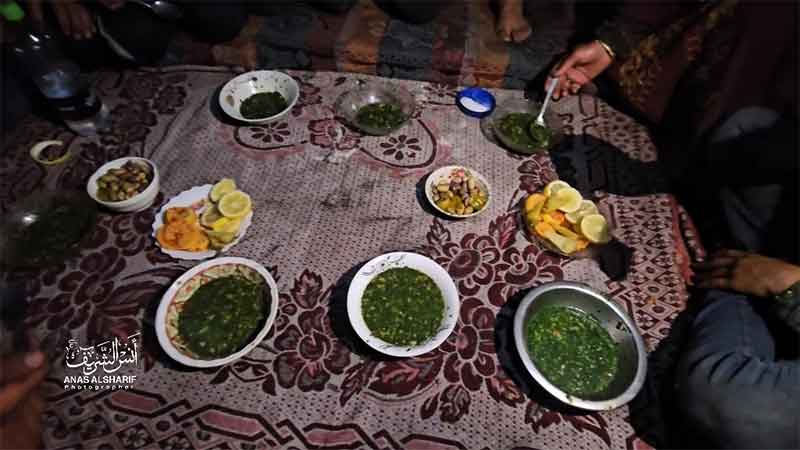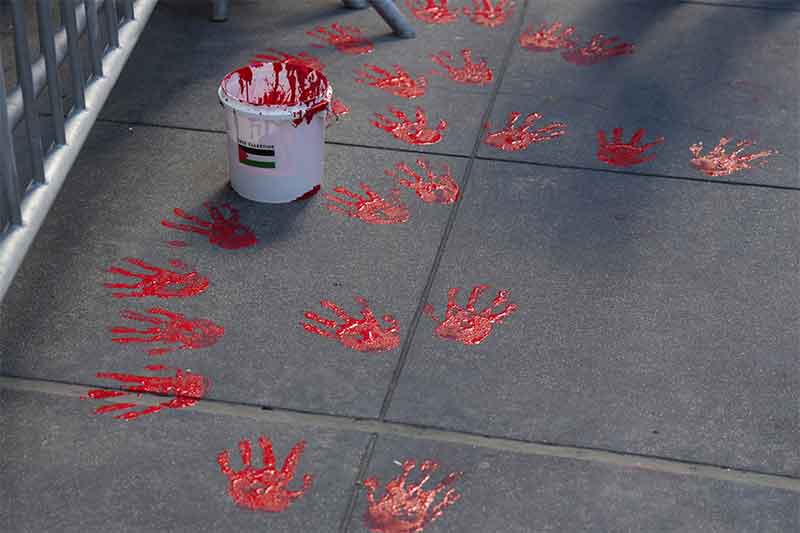
Co-Written by Dr. P.S. Sahni& Shobha Aggarwal
The RSS affiliated Shiksha Sanskriti Utthan Nyas headed by Dina NathBatra has sent a list of recommendations for the NCERT (National Council of Educational Research and Training) which had recently solicited public response for its review of school textbooks. The list includes removal of Paash’s poem, “The Most Dangerous”.
Paash, a Sikh was killed by Khalistani separatists – demanding a theocratic Sikh state – on 23rd March, 1988. “The Most Dangerous” is one of the most powerful and influential work of this revolutionary poet. Countercurrents.org had carried the poem as a comment on 30 June, 2017 and also on its Facebook.
‘The Most Dangerous’ has been translated from Punjabi to English by Dr. Satnam Singh Sandhu of Punjabi University, Patiala. It is as follows:
The Most Dangerous
Most treacherous is not the robbery
of hard earned wages
Most horrible is not the torture by the police.
Most dangerous is not the graft for the treason and greed.
To be caught while asleep is surely bad
surely bad is to be buried in silence
But it is not most dangerous.
To remain dumb and silent in the face of trickery
Even when just, is definitely bad
Surely bad is reading in the light of a firefly
But it is not most dangerous
Most dangerous is
To be filled with dead peace
Not to feel agony and bear it all,
Leaving home for work
And from work return home
Most dangerous is the death of our dreams.
Most dangerous is that watch
Which run on your wrist
But stand still for your eyes.
Most dangerous is that eye
Which sees all but remains frostlike,
The eye that forgets to kiss the world with love,
The eye lost in the blinding mist of the material world.
That sinks the simple meaning of visible things
And is lost in the meaning return of useless games.
Most dangerous is the moon
Which rises in the numb yard
After each murder,
but does not pierce your eyes like hot chillies.
Most dangerous is the song
which climbs the mourning wail
In order to reach your ears
And repeats the cough of an evil man
At the door of the frightened people.
Most dangerous is the night
Falling in the sky of living souls,
Extinguishing them all
In which only owls shriek and jackals growl,
And eternal darkness covers all the windows.
Most heinous is the direction
In which the sun of the soul light
Pierces the east of your body.
Most treacherous is not the
robbery of hard earned wages.
Most horrible is not the torture of police
Most dangerous is not graft taken for greed and treason.
It may be recalled that in 2006 BJP MP, Ravi Shankar Prasad during a debate on NCERT books had told Parliament (RajyaSabha) that Paash was a Naxalite. The NCERT had prescribed Paash’s poem “The Most Dangerous” in Hindi textbooks for class XI students from 2006 onwards. This is part of an arrangement whereby 20% literature is translated from other languages. This poem was selected for all India syllabus of NCERT.
The persistent efforts of BJP and its affiliates to erase the work of Paash is not the least ironical; after all such political and cultural forces feel threatened by the martyr-hood of a Sikh revolutionary poet who staunchly opposed divisive and communal politics in Punjab and elsewhere. The real irony is that Paash, with left-leaning politics, had to master the Sikh holy book Guru Granth Sahib, cull out the struggles of Sikh gurus and then used the material to intellectually challenge the votaries of a theocratic state who stood for religious fundamentalism. The ruling class parties like the BJP and the ShiromaniAkali Dal – both with communal agenda – feel threatened by the works of poet Paash.
The attempt to erase the works of Paash from Indian textbooks should be resisted. The original poem in Punjabi reads as follows:
ਕਿਰਤਦੀਲੁੱਟਸਭਤੋਂਖ਼ਤਰਨਾਕਨਹੀਂਹੁੰਦੀ
ਪੁਲਸਦੀਕੁੱਟਸਭਤੋਂਖ਼ਤਰਨਾਕਨਹੀਂਹੁੰਦੀ
ਗੱਦਾਰੀ-ਲੋਭਦੀਮੁੱਠਸਭਤੋਂਖ਼ਤਰਨਾਕਨਹੀਂਹੁੰਦੀ
ਬੈਠੇਸੁੱਤਿਆਂਫੜੇਜਾਣਾ-ਬੁਰਾਤਾਂਹੈ
ਡਰੂਜਿਹੀਚੁੱਪਵਿੱਚਮੜ੍ਹੇਜਾਣਾ -ਬੁਰਾਤਾਂਹੈ
ਸਭਤੋਂਖਤਰਨਾਕਨਹੀਂਹੁੰਦਾ
ਕਪਟਦੇਸ਼ੋਰਵਿਚ
ਸਹੀਹੁੰਦਿਆਂਵੀਦਬਜਾਣਾ, ਬੁਰਾਤਾਂਹੈ
ਕਿਸੇਜੁਗਨੂੰਦੀਲੋਅਵਿਚਪੜ੍ਹਨਲੱਗਜਾਣਾ -ਬੁਰਾਤਾਂਹੈ
ਸਭਤੋਂਖ਼ਤਰਨਾਕਨਹੀਂਹੁੰਦਾ।
ਸਭਤੋਂਖ਼ਤਰਨਾਕਹੁੰਦਾਹੈ
ਮੁਰਦਾਸਾਂਤੀਨਾਲਭਰਜਾਣਾ,
ਨਾਹੋਣਾਤੜਪਦਾ, ਸਭਸਹਿਣਕਰਜਾਣਾ
ਘਰਾਂਤੋਂਨਿਕਲਣਾਕੰਮਤੇ
ਤੇਕੰਮਤੋਂਘਰਜਾਣਾ,
ਸਭਤੋਂਖ਼ਤਰਨਾਕਹੁੰਦਾਹੈ
ਸਾਡੇਸੁਪਨਿਆਂਦਾਮਰਜਾਣਾ।
ਸਭਤੋਂਖ਼ਤਰਨਾਕਉਹਘੜੀਹੁੰਦੀਹੈ
ਤੁਹਾਡੇਗੁੱਟ ‘ਤੇਚਲਦੀਹੋਈਵੀਜੋ
ਤੁਹਾਡੀਨਜ਼ਰਦੇਲਈਖੜ੍ਹੀਹੁੰਦੀਹੈ।
ਸਭਤੋਂਖ਼ਤਰਨਾਕਉਹਅੱਖਹੁੰਦੀਹੈ
ਜੋਸਭਦੇਖਦੀਹੋਈਵੀਠੰਢੀਯੱਖ਼ਹੁੰਦੀਹੈ
ਜਿਸਦੀਨਜ਼ਰਦੁਨੀਆਨੂੰਮੁਹੱਬਤਨਾਲਚੁੰਮਣਾਭੁੱਲਜਾਂਦੀਹੈ
ਜੋਚੀਜ਼ਾਂ ‘ਚੋਂਉਠਦੀਅੰਨ੍ਹੇਪਣਦੀਭਾਫ਼ਉੱਤੇਡੁਲ੍ਹਜਾਂਦੀਹੈ
ਜੋਨਿੱਤਦਿਸਦੇਦੀਸਾਧਾਰਣਤਾਨੂੰਪੀਂਦੀਹੋਈ
ਇਕਮੰਤਕਹੀਣਦੁਹਰਾਅਦੇਗਧੀ-ਗੇੜਵਿਚਹੀਰੁਲਜਾਂਦੀਹੈ।
ਸਭਤੋਂਖ਼ਤਰਨਾਕਉਹਚੰਨਹੁੰਦਾਹੈ
ਜੋਹਰਕਤਲਕਾਂਡਦੇਬਾਅਦ
ਸੁੰਨਹੋਏਵਿਹੜਿਆਂਵਿੱਚਚੜ੍ਹਦਾਹੈ
ਪਰਤੁਹਾਡੀਆਂਅੱਖਾਂਨੂੰਮਿਰਚਾਂਵਾਂਗਨਹੀਂਲੜਦਾਹੈ।
ਸਭਤੋਂਖ਼ਤਰਨਾਕਉਹਗੀਤਹੁੰਦਾਹੈ
ਤੁਹਾਡੇਕੰਨਾਂਤੱਕਪਹੁੰਚਣਲਈ
ਜਿਹੜਾਕੀਰਨਾਉਲੰਘਦਾਹੈ
ਡਰੇਹੋਏਲੋਕਾਂਦੇਬਾਰਮੂਹਰੇ-
ਜੋਵੈਲੀਦੀਖੰਘਖੰਘਦਾਹੈ।
ਸਭਤੋਂਖ਼ਤਰਨਾਕਉਹਰਾਤਹੁੰਦੀਹੈ
ਜੋਪੈਂਦੀਹੈਜੀਊਂਦੀਰੂਹਦਿਆਂਆਕਾਸ਼ਾਂ ‘ਤੇ
ਜਿਹਦੇਵਿਚਸਿਰਫ਼ਉੱਲੂਬੋਲਦੇਗਿੱਦੜਹਵਾਂਕਦੇ
ਚਿਪਟਜਾਂਦੇਸਦੀਵੀਨ੍ਹੇਰਬੰਦਬੂਹਿਆਂਚੁਗਾਠਾਂ ‘ਤੇ
ਸਭਤੋਂਖ਼ਤਰਨਾਕਉਹਦਿਸ਼ਾਹੁੰਦੀਹੈ
ਜਿਹਦੇਵਿੱਚਆਤਮਾਦਾਸੂਰਜਡੁੱਬਜਾਵੇ
ਤੇਉਸਦੀਮਰੀਹੋਈਧੁੱਪਦੀਕੋਈਛਿਲਤਰ
ਤੁਹਾਡੇਜਿਸਮਦੇਪੂਰਬ ‘ਚਖੁੱਭਜਾਵੇ।
ਕਿਰਤਦੀਲੁੱਟਸਭਤੋਂਖ਼ਤਰਨਾਕਨਹੀਂਹੁੰਦੀ
ਪੁਲਸਦੀਕੁੱਟਸਭਤੋਂਖ਼ਤਰਨਾਕਨਹੀਂਹੁੰਦੀ
ਗੱਦਾਰੀ-ਲੋਭਦੀਮੁੱਠਸਭਤੋਂਖ਼ਤਰਨਾਕਨਹੀਂਹੁੰਦੀ।
The Hindi translation of the poem is as follows:
मेहनतकीलूटसबसेख़तरनाकनहींहोती
पुलिसकीमारसबसेख़तरनाकनहींहोती
ग़द्दारीऔरलोभकीमुट्ठीसबसेख़तरनाकनहींहोती
बैठे-बिठाएपकड़ेजानाबुरातोहै
सहमी-सीचुपमेंजकड़ेजानाबुरातोहै
सबसेख़तरनाकनहींहोता
कपटकेशोरमेंसहीहोतेहुएभीदबजानाबुरातोहै
जुगनुओंकीलौमेंपढ़ना
मुट्ठियांभींचकरबसवक़्तनिकाललेनाबुरातोहै
सबसेख़तरनाकनहींहोता
सबसेख़तरनाकहोताहैमुर्दाशांतिसेभरजाना
तड़पकानहोना
सबकुछसहनकरजाना
घरसेनिकलनाकामपर
औरकामसेलौटकरघरआना
सबसेख़तरनाकहोताहै
हमारेसपनोंकामरजाना
सबसेख़तरनाकवोघड़ीहोतीहै
आपकीकलाईपरचलतीहुईभीजो
आपकीनज़रमेंरुकीहोतीहै
सबसेख़तरनाकवोआंखहोतीहै
जिसकीनज़रदुनियाकोमोहब्बतसेचूमनाभूलजातीहै
औरजोएकघटियादोहरावकेक्रममेंखोजातीहै
सबसेख़तरनाकवोगीतहोताहै
जोमरसिएकीतरहपढ़ाजाताहै
आतंकितलोगोंकेदरवाज़ोंपर
गुंडोंकीतरहअकड़ताहै
सबसेख़तरनाकवोचांदहोताहै
जोहरहत्याकांडकेबाद
वीरानहुएआंगनमेंचढ़ताहै
लेकिनआपकीआंखोंमें
मिर्चोंकीतरहनहींपड़ता
सबसेख़तरनाकवोदिशाहोतीहै
जिसमेंआत्माकासूरजडूबजाए
औरजिसकीमुर्दाधूपकाकोईटुकड़ा
आपकेजिस्मकेपूरबमेंचुभजाए
मेहनतकीलूटसबसेख़तरनाकनहींहोती
पुलिसकीमारसबसेख़तरनाकनहींहोती
ग़द्दारीऔरलोभकीमुट्ठीसबसेख़तरनाकनहींहोती।
Dr. P.S. Sahni& Shobha Aggarwal are members of PIL Watch Group. Email: [email protected]

















































